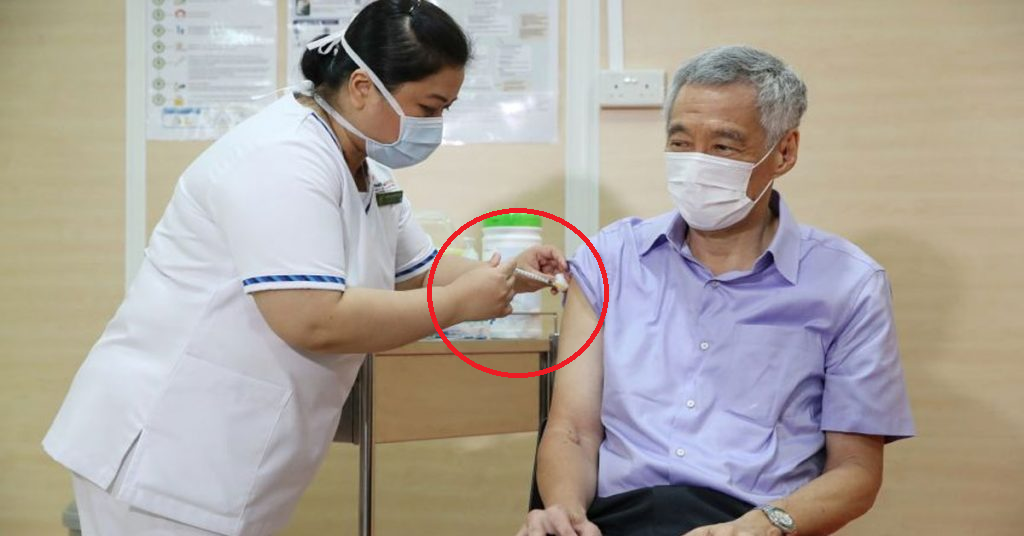These days, if you see someone in a shopping mall who is bare-faced, you’d look at them as if they were pointing a gun at you.
The coronavirus pandemic has forced us to cover the lower half of our faces when we go out, to prevent spreading the disease by reducing the transmission of respiratory droplets.
And if you’re a healthcare worker, you’ll have to cover even more of your body, to protect yourself from infection so you can continue to treat the ill.
That’s why some were surprised to see the nurse who gave PM Lee the Covid-19 vaccine administering the jab with bare hands:

And the same, strange phenomenon was observed in other countries.
So, what the heck is going on, and why aren’t nurses wearing gloves when administering Covid-19 vaccines?
Gloves Not Required During Vaccinations or Injections
According to the Washington State Department for Health, gloves are not recommended for most vaccination administration and are not required for the Covid-19 vaccine.
The only exception to this guideline is when the person administering the vaccine is likely to come into contact with potentially infectious body fluids or has open lesions on their hands, the department said.

The General Best Practice Guidelines for Immunization set out by The Centers for Disease Control and Prevention says the same thing:
“Occupational Safety and Health Administration (OSHA) regulations do not require gloves to be worn when administering vaccinations, unless persons administering vaccinations have open lesions on their hands or are likely to come into contact with a patients body fluids”.
Okay, but why is this the case?
Gloves Could Increase Likelihood of Spreading Germs
If used improperly, gloves could actually increase the likelihood of spreading germs.
Germs collect on gloves when a person wearing them starts touching surfaces like
lift buttons or door handles.
The problem is that these gloves are often presumed to be clean by its wearer.
This is why healthcare workers are instructed to wash their hands before they
put on gloves and after taking them off.
Unlike while you’re wearing gloves, you can clean your bare hands with sanitiser and soap, which stops the spread of germs.
Gloves are also not a complete barrier as pin holes not visible to the naked eye allow thousands of germs to pass through within a short period of time.
Global Shortage of Gloves
A global shortage of gloves may have also played into some hospitals’ decision to forgo gloves when giving vaccines.
According to New Straits Times, the global shortage of rubber gloves will last beyond the first quarter of 2022.
You can be assured of your safety, however, as healthcare workers are instructed to maintain good hand hygiene before and after administering vaccinations.
They must also wear a mask at all times.
So, when it’s your turn to get the Covid-19 vaccine, and you see your nurse approaching with a needle in between bare fingers, don’t fret.
Featured Image: Ministry of Communications and Information




